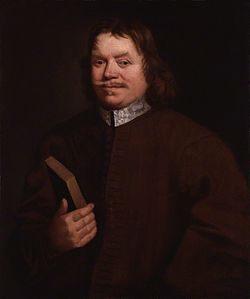Analysis of The Song of the Shepherd Boy in the Valley of Humiliation
John Bunyan 1628 (Elstow, Bedfordshire) – 1688 (London)
He that is down need fear no fall,
He that is low, no pride;
He that is humble ever shall
Have God to be his guide.
I am content with what I have,
Little be it or much:
And, Lord contentment still I crave,
Because Thou gavest such.
| Scheme | XAXA XBXB |
|---|---|
| Poetic Form | Quatrain |
| Metre | 11111111 111111 11110101 111111 11101111 101111 01010111 01111 |
| Closest metre | Iambic tetrameter |
| Characters | 232 |
| Words | 50 |
| Sentences | 3 |
| Stanzas | 2 |
| Stanza Lengths | 4, 4 |
| Lines Amount | 8 |
| Letters per line (avg) | 22 |
| Words per line (avg) | 6 |
| Letters per stanza (avg) | 88 |
| Words per stanza (avg) | 24 |
Font size:
Submitted on May 13, 2011
Modified on March 05, 2023
- 15 sec read
- 139 Views
Citation
Use the citation below to add this poem analysis to your bibliography:
Style:MLAChicagoAPA
"The Song of the Shepherd Boy in the Valley of Humiliation" Poetry.com. STANDS4 LLC, 2024. Web. 30 May 2024. <https://www.poetry.com/poem-analysis/22155/the-song-of-the-shepherd-boy-in-the-valley-of-humiliation>.


Discuss this John Bunyan poem analysis with the community:
Report Comment
We're doing our best to make sure our content is useful, accurate and safe.
If by any chance you spot an inappropriate comment while navigating through our website please use this form to let us know, and we'll take care of it shortly.
Attachment
You need to be logged in to favorite.
Log In